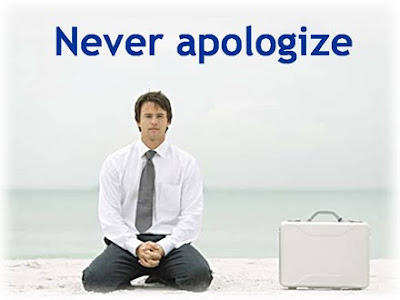
November 30th, 2009 by Happy Hospitalist in Better Health Network, Opinion, True Stories
Tags: Bundled Payments, Exam, History and Physical, Hospitalists, Internal Medicine, Listenting, Psychiatry
2 Comments »

I remember very clearly as a medical student hearing my attending hammer home the importance of the history and physical examination. Everyday I heard the same thing
The history and physical examination is the most important part of patient care
After seven long years of hospitalist medicine, I gotta say my attendings were right. If you listen to what the patient is telling you, the answer is often staring you in the face. Unfortunately, in this volume driven world of fee for service we live in, time is not on the physician’s side. Most elderly patients are incapable of separating important medical information from irrelevant medical information, which can make history taking a very painful part of being a doctor. So they just talk and talk and talk. Read more »
*This blog post was originally published at The Happy Hospitalist Blog*
November 29th, 2009 by Richard Cooper, M.D. in Better Health Network, Health Policy, Opinion
Tags: CMS, Dartmouth Atlas, Dual Eligible, Geography, Healthcare reform, Inequities, Medicare, Poverty
No Comments »

In a recent Health Affairs blog, Wennberg and Brownlee lamented that op-eds, blogs, letters to members of Congress, broadsides in the press and now a report from the American Hospital Association decry the Dartmouth Atlas as a lot of “malarkey.” Once again they tried to defend their work by proving that race and poverty don’t matter, but they do. Even the “impartial” introduction by the editor of Health Affairs, a member of Dartmouth’s Board, couldn’t save the day: “Wennberg and Brownlee rebut claims that variations among academic medical centers are due to differences in patient income, race, and health status.” Wrong, again! That’s exactly what variations are due to. Read more »
*This blog post was originally published at PHYSICIANS and HEALTH CARE REFORM Commentaries and Controversies*
November 29th, 2009 by Toni Brayer, M.D. in Better Health Network, Opinion
Tags: Apologize, Apology, Medical Error, Medical Malpractice, Sorry, Sorry Works
No Comments »


The movement for physicians to say “I’m sorry” when things go wrong in patient care has been under debate for the past few years. In the past, physicians were advised to never admit to a problem or to apologize for clinical errors with the thought that it would lead to more lawsuits. Saying “I’m sorry” might be taken by a lawyer as an admission of guilt and malpractice. Attorneys advised, “Say nothing” but that left patients with unanswered questions and often the feeling that the doctor just didn’t care.
Numerous studies have shown that patients want physicians to disclose harmful errors and they want information about what happened, why it happened and if something has been done to keep it from happening again. There has been a gap between what patients want and what actually occurs. Read more »
*This blog post was originally published at EverythingHealth*
November 28th, 2009 by Dr. Val Jones in Expert Interviews, Opinion
Tags: CAM, Complementary And Alternative Medicine, Fibromyalgia, Laurie Edwards, Lyme Disease, Science Based Medicine
No Comments »

Laurie Edwards has a rare chronic disease called primary ciliary dyskinesia. Her symptoms are quite similar to those associated with cystic fibrosis, and her young life has been punctuated by numerous hospitalizations, physical limitations and the occasional near-death experience. She is a remarkably upbeat woman, and attributes her self confidence and optimistic outlook to her loving friends and family.
Laurie is part of the patient blogging community online. She reads physician blogs with interest, and wants to protect others like her from snake oil and misinformation. She recently interviewed me about my pro-science views for a new book that she’s writing. People like Laurie play a critical role in accurate health communication, and I welcome the chance to discuss science-based medicine with them. Here are some excerpts from our chat: Read more »
*This blog post was originally published at Science-Based Medicine*
November 25th, 2009 by Emergiblog in Better Health Network, Health Policy, Opinion
Tags: Annenberg School of Journalism, Healthcare reform, Poverty, Public Health, Socio-Economics, USC
1 Comment »

I was part of the USC Annenberg School of Communication and Journalism’s “Health and the Blogosphere” conference/brainstorming session last week. Bloggers and other health writers were invited to give input on a new professional training program, and I was honored to be a part of that group.
I took away so much more than I contributed. An unexpected focus (for me) was the idea of taking the blogosphere dialog about our own health (”my health”) and expanding that into a discussion about the health of our communities (”our health”).
But haven’t we’ve been doing that for the last year, health care reform having been debated ad nauseam?
Well, no. Read more »
*This blog post was originally published at Emergiblog*

















